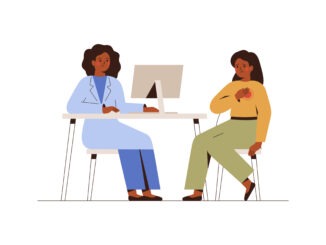
Michael Rosen says that those looking at government plans for education are struggling to find what hard cash is going to be given to schools
CREDIT: This is an edited version of an article that originally appeared in The Guardian
So, you’re levelling up; as your government has spent the last 10 years levelling down, you’ll forgive me if I don’t cheer. To justify why the government has hit people so hard, and for so long, I heard one of your predecessors, Michael Gove, on the Radio 4 Today programme repeating the theme song always played for this purpose; it was necessary to make cuts (translation – to make poor people poorer) because there was ‘no money left’ when the government came to power. You’ll know, though, that billions somehow appeared from nowhere in the first phases of the pandemic; perhaps you also spotted this week that there are great concerns now that some of that money was wasted. Could that be true?
I mention this because the journalists looking at the levelling up plans for education are struggling to find what hard cash is going to be handed over to schools. There might be some ‘creative accounting’ going on; announcing ‘new’ funding that is actually old funding.
Leaving that aside, there are two core problems with your so-called levelling up. The first arises when it is cast – as you have – as if inequality were solely a north-south problem. I’ve lived in London all my life; there are some parts of London where a high percentage of people are on the bottom level of incomes -treating such people as privileged is absurd and insulting.
What kind of levelling up is possible when your government backs the arrangements by which the privileged remain privileged – inheritance of property, tax havens and private education? These create and freeze the ‘levels’ in society; they are built into the system. If there are individuals who can hop up from one level to another, it follows from this set-up that for every person who hops up, someone has to hop down. Who’s volunteering for that?
You’re also part of a government that has behaved in the past as if the public sector – of which schools are such a big part – is a beastly drag on society. Yet the public sector is what helps us stay alive long enough to benefit from the crumbs that drop from the rich man’s table. Did ‘trickle down’ ever happen, or was that as empty a slogan as ‘levelling up’?
So, these are the contexts for levelling up education. You may already have heard some cynical snorts and guffaws coming from the chalkface. Since 1988 successive governments have treated education as an electoral asset; they’ve come up with endless slogans and projects to supposedly solve what is supposedly a crisis. Each time, they have peddled the narrative of decline, which claims that things are worse now than they were before. Each time, the initiative is heralded as the solution to the decline. Thus, the national curriculum, SATs, Ofsted, city technology colleges, the literacy hour, the numeracy hour, league tables, academies, free schools, the knowledge-rich curriculum, Ofqual, systematic synthetic phonics, eBacc, education action zones, behaviour tsar, progress 8…what have I missed out?
Some are great, but get abolished; some are rubbish, but survive. The consistent point about them is that they were all imposed from on high. It seems as if the intellectual ceiling of those in government restricts people from imagining that education could be run in a vastly more participatory and consensual way.
And here you are again, sitting in your office in London cooking up stuff that you say will solve everything for some people out there. On this occasion, the people out there are in the north. You’ve even marshalled some nonsense about wanting everyone to do better at SATs. You’ve had years to get everyone to do better at SATs. You’ve had Ofsted, league tables, academies, free schools, hubs, Ofqual and systematic synthetic phonics to ensure that everyone does better at SATs. What’s gone wrong with your initiatives?
You are peddling jiggery-pokery here. I think if you pop down the corridor from your office, and nip into another office, you’ll be able to look carefully at how the SATs marking is done.
You’ll find that it’s rigged anyway.
The setters and markers of the tests decide how many succeed and how many fail before the students even sit down to write their papers.
They can level up or down anytime they like. I hope I haven’t shocked you by telling you that.
Yours, Michael Rosen


Be the first to comment